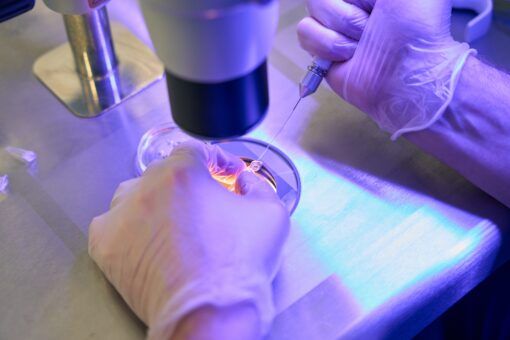Report24th July 2025

Summary
- In vitro gametogenesis (IVG) is a technology which aims to create viable human eggs and sperm (gametes), grown from either embryonic or induced pluripotent stem cells (e.g. skin cells) in a laboratory.
- IVG is not currently in clinical use, but research in non-human animals is advancing and the possibilities that IVG could offer for human reproduction are potentially transformative.
- This policy briefing focusses on potential clinical applications of IVG in the future, and the associated ethical, legal and social issues these raise.
- IVG may bring significant benefits for addressing infertility and enable a wider range of people to have their own genetically related children – such as enabling same-sex couples to have a child genetically related to both parents.
- IVG raises a range of ethical issues, including around consent, the role of genetic relatedness in families and equity of access to such treatments should they become available.
- The law currently prohibits the clinical application of IVG, but IVG research is permissible within the current UK legislative framework.
- Before direct application of IVG to human reproduction can be considered, rigorous testing will be needed to ensure its safety, alongside extensive public engagement and a thorough consideration of the ethical and legal issues.
- If deemed sufficiently safe, and ethically and socially acceptable, changes to existing legislation would be required before IVG could be used in the clinic.